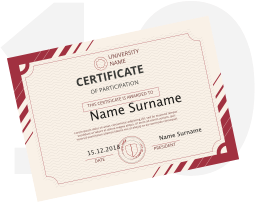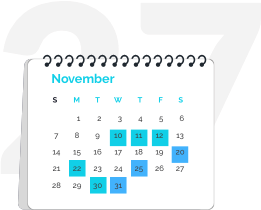STARTBODY
Home >
Fun White Board Games
Sorry...Your search - fun white board games - did not match any pages.
Make sure that all words are spelled correctly.
- Try different words.
- Try more general words.
- Try fewer words.
If you wish to know more about ITTT TEFL and TESOL Courses, please check this out!
A quick online search will reveal a large number of course providers offering a wide range of TESOL certification. At ITTT we think we stand out from this crowd for many different reasons. Take a look at these key points and see if you agree that we provide the very best TESOL course options available.
At ITTT we have been providing high-quality courses since 1998 which makes us one of the longest running and most respected providers in the TESOL world;
To ensure you receive the very best service we only employ staff members who have experience of living and teaching abroad;
If you are fluent in English you are welcome to take any of our TESOL training courses, no matter where you are from;
A good knowledge of English is all that is required to join our courses. Your age, academic background and work history are no barrier to starting a new career in teaching;
To make things as easy as possible we accept payments in many different forms, including credit/debit card, PayPal, Western Union, WeChat and bank transfer;
Rest assured that you will find no hidden costs during any of our TESOL courses. The advertised fee covers everything you need, including study materials and certification;
Check out our special offers page as we regularly have discounted fees and even free additional courses;
In order to offer opportunities to people from all backgrounds we have courses to suit most budgets. Our main goal is to provide the very best value for money;
To ensure you can have any questions answered promptly we provide round-the-clock assistance via a range of methods, such as our contact form, whatsapp, Facebook Messenger, and telephone;
On completion of a course every graduate receives a high-quality embossed certificate with a unique number that employers can use to check its authenticity;
We offer a range of notarization options for our course certificates for anyone that requires it;
If you don’t want to wait for the hard copy of your certificate to arrive we can also send you an instant electronic copy via email;
Our certificates are sent out for free via registered post and we also offer express delivery at a small extra cost;
As we have been providing TESOL certification for so long our qualifications are recognised and welcomed by employers worldwide;
Our services do not stop once you graduate as we also provide lifetime job assistance and access to teaching materials and lesson plans;
As part of our post-course job assistance program we have long standing partnerships with some of the top recruitment companies in the TESOL world;
Our popular blog provides a wealth of information regarding teaching around the world. It is also a great platform for our graduates to share their own experiences;
To add further depth to our course materials we also have a large selection of videos on our YouTube channel covering everything from course advice to classroom teaching;
Join our Facebook community to find support, guidance and advice from teaching experts, current trainees, and past graduates of our TESOL courses;
ITTT has one of the strongest social media presences of any TESOL course provider with popular groups on platforms such as Facebook, Instagram, Pinterest, Youtube, Vkontakte, and Quora;
We are exceptionally proud to have high ratings from our course graduates on a range of independent websites, including Facebook, GoAbroad.com, GoOverseas.com, reviews.co.uk, teflreviews.com, and Trustpilot;
The quality of our courses and customer service has been widely recognized by major awards from respected organizations within the TESOL sector such as GoAbroad.com and GoOverseas.com;
We continually monitor and develop our courses and study materials to ensure they remain the very best on offer within the teacher training world;
Our e-guide and brochure are two free to download options that provide a great insight into ITTT, our courses, and the wide world of teaching English abroad;
Sign up for our Partnership Program and you can earn extra income for very little work. Simply refer new trainees to us via your website, blog, or social media community and earn a generous commission;
Stand out from the competition by issuing your own certificates of completion to any student who completes a series of lessons with you;
Visit our website and social media platforms for unique job listings that are updated with quality positions daily;
At ITTT we are with you for the whole journey. We will help you choose the right course, guide you through it, and help you find a teaching job that suits you;
At ITTT our courses are accredited by prominent and highly respected institutions in the EFL world, including the the Paris University of International Education.
in-class & combined courses
You can choose from an amazing range of in-class course locations worldwide. We have centers in major cities such as Barcelona, Paris and Rome, as well as tropical destinations including Thailand and Costa Rica;
Whatever your budget we will do our best to recommend comfortable accommodation options at all of our in-class course locations;
During your in-class TESOL course you will have the benefit of several hours teaching practice with genuine language students in a real classroom;
Most in-class TESOL courses include extra bonuses such as free airport pickup, a welcome dinner with your trainers and fellow trainees, and even group excursions in some locations;
The combined course option mixes online learning with in-class training. The in-class section can be taken in amazing locations such as Bangkok, Barcelona, New York, Paris, and Phuket;
For those in a hurry we offer a 5-day combined course option that includes face to face instruction in a wide range of locations across the USA and Canada;
To ensure we cover the needs of every trainee we offer a wide choice of specialized courses, an advanced level diploma, and a range of great value course packages. Our specialized courses include:
- CTBE: Certificate for Teaching Business English
- CETYL: Certificate for Teaching English to Young Learners
- CTEO: Certificate for Teaching English Online
- CTPR: Certificate of Teaching Practice Recognition
- CTP: 150-hour Certification course with Teaching Practice
If you choose an online course with a tutor you will be guided through your studies by a qualified teacher trainer with many years of international teaching experience;
In the interest of flexibility we allow every trainee to set their own study schedule and give you up to six months to complete your course;
Gain credits towards your bachelor’s or master’s degree with our online TESOL courses.
Studying an online TESOL course with ITTT couldn’t be easier as everything you need is available through your own personalized dashboard within our online training system;
Our courses cover all the most important subjects that every new teacher needs to know, such as teaching methodologies, classroom management, and English grammar;
You are free to study your course your own way using a PC, laptop, tablet, or smartphone. All the course materials, including videos, can be studied online or downloaded for offline study;
Our in-class course options are highly practical in nature and we also include as much practical content as possible in our online course options;
As our online courses can be taken anywhere in the world with an internet connection they are highly flexible and convenient. You also get to set your own study schedule;
Assessment of our online courses is done via regular automated tests so there is no need to worry about any end of course exams;
ENDBODY















































